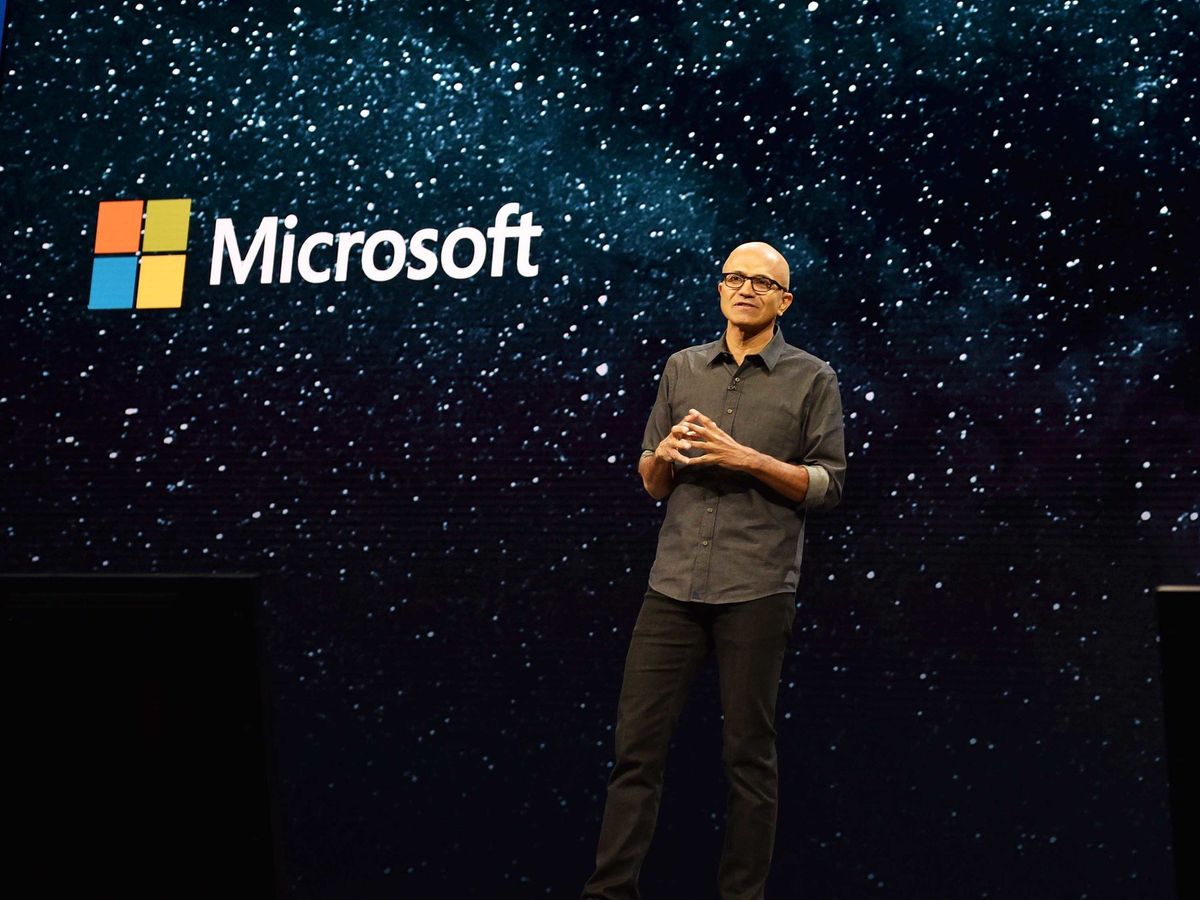Abuse of new tech is inevitable, so what can Microsoft do about it?
Technology can enhance our lives in many ways. Sadly, its (inevitable) misuse can also do tremendous harm.

In and of itself, technology is neither good nor bad. It has no will nor moral guide save that which we, its makers, provide. Nuclear power, for instance, was developed with the promise of providing an unending energy source. Atomic bombs dropped on Hiroshima and Nagasaki Japan during World War II revealed other ways in which man is inclined to harness and deploy nuclear power. Modern threats from North Korea remind us that its harmful uses aren't reserved to the pages of history.
Wherever we apply our intellect to advance technology, our baser nature inevitably perverts its use toward harming humanity. Rather than confining our knowledge of biology and chemistry to the development of medicines and treatments for illnesses, we devote energy and resources to producing biological and chemical weapons. The morbid list goes on.
As Microsoft and other companies pursue new technologies that have the potential to profoundly affect humanity, like quantum computing, AI-driven surveillance and ambient computing (via always-connected technology), the question isn't "Will this technology be misused?" It's what failsafes, systems of accountability and policies will we proactively enact to mitigate the impact of their inevitable abuse?
Quantum computing and what can go wrong
In late 2016, Microsoft announced investments in quantum computing. Whereas traditional computers use bits, which exist as a one or a zero, to perform computations, quantum computers use quantum bits or qubits. Qubits can exist as a one and a zero simultaneously. This state, called superposition, increases the computational power of quantum computers exponentially.
Microsoft's do more vision of quantum computing
The difference between the power of quantum and traditional computers is profound. It's like a child using one finger to peck the basic melody of "Mary had a Little Lamb" on a piano compared to a concert pianist using all ten fingers and the piano's foot pedals to play the same song using complex chords, runs, and progressions. A quantum computer is more than the familiar incremental step in processor speed. It is a leap to a new type of computing. It can potentially run complex computations in seconds that today's most powerful computers would take years to run. Data encryption, database searching, and simulations are some areas quantum computing is expected to impact.
Qunatum computing is a new type of computing not an incremental increase in processing power.
As more data is moved to and interconnected in the cloud, the ability to cross-reference relevant information via an intelligent platform for more significant insights increases profoundly. Combined with quantum computing, this could have beneficial impacts on business, communities, academia, healthcare, research, governments, law enforcement and more. The potential implications for misuse are equally profound. Imagine oppressive governments using the power of the intelligent cloud and quantum computing to run simulations to reveal optimal ways to limit resources to a certain segment of the population.
Get the Windows Central Newsletter
All the latest news, reviews, and guides for Windows and Xbox diehards.
The potential power of quantum computing to run long-term scenarios and accurate outcomes will inevitably be applied to warfare. Governments armed with quantum computers and the inevitable weapons they may be used to devise will likely use this technology to enhance strategies to determine the physical and economic devastation they can level against one another. Cyber-warfare will likely reach unprecedented levels as quantum-based data encryption is applied to systems and quantum-based hacking is, as well. Additionally, governments and entities that manipulate local and global markets now will likely find the computational and predictive powers of quantum computing an irresistible tool in their agendas.
Further reading: Is Quantum computing a genie we will wish we kept in the bottle?
Eyes on everything

During Microsoft's 2017 Build Developers Conference, the company introduced its AI-driven surveillance technology. The technology uses current camera technology and infuses it with AI powered by the edge of Microsoft's cloud, or intelligent edge.
The technology is capable of identifying people, activity, and objects in the real world. In worksites, the AI-driven system proved capable of detecting hazardous conditions and proactively alerting staff to the problem. It was also able to find a needed tool, inform the nearest person to the tool and instruct that person to deliver it where required. In a hospital setting, it was able to detect when a patient's activity surpassed what was prescribed and proactively alerted staff. In these scenarios, the system's ability to recognize people, objects, activity and its connection to information about an individual (as seen in the hospital setting) paints a dystopian picture for potential abuse.
Imagine the millions of cameras already in place in public, private institutions, homes, schools and more being connected to the intelligent edge and infused with AI. Facebook, with its two billion users, facial recognition, a repository of personal data from birthdates, family connections, home locations, and more, is just one resource these AI-driven systems can cross-reference. Governments, school systems, private organizations and employers that have access to additional data could profoundly abuse AI-driven surveillance.
AI could potentially be used to follow specific individuals (from camera to camera) without the need for human interaction. This technology can be misused to target individuals that an oppressive government, organization or rogue individual sees as a threat. How might this affect the expression of unpopular ideas in a politically polarized environment? Imagine what hackers could do with this technology?
Further Reading: Dystopian abuse of Microsoft's powerful AI-driven camera tech is all but inevitable
A connected future, a hackers dream

We are moving toward a world where all of our devices, appliances and even our cars will exist in an always-connected state. This connected world will create an ambient computing environment where computing isn't focused on any one device. It will be a cloud- and AI-supported environment where the devices around us recognize us and access our cloud data to serve our computing needs as we move to various contexts and use various devices.
This connected world will use as its unifying tapestry, the internet, which brings with it all of its inherent vulnerabilities. As our homes and cars become part of the Internet of Things (IoT), the potential harm hackers can impart moves from data breaches to possible life-threatening scenarios.
Hacking smart homes, smart speakers, smart TVs and connected cars has already been proven possible. Hackers, including the CIA, have proven able to spy on unwitting individuals through connected devices like TVs, phones and home security cameras. Still, we are moving swiftly toward a connected future with limited attempts at regulation and little attention to its dangers.
Further Reading: Ambient computing puts us at greater risk from hackers
A call to action
You are likely a techie who embraces technological advances. Sadly, these advances don't exist in a vacuum. Their use is impacted by human nature and our inevitable tendency toward our baser inclinations. Microsoft CEO Satya Nadella acknowledged this during his Build 2017 keynote with references to the dystopian novel "1984" before introducing Microsoft's AI-driven surveillance tech. In 2016, Microsoft's chatbot Tay was perverted by its interaction with humans and began spouting racist and other derogatory slurs.
Though this may sound like doom and gloom, it is not meant to be. It's an acknowledgment of what our nature and history tell us about how emerging technologies will likely be misused. The impact of that misuse can potentially be mitigated, however, if we acknowledge its inevitability and begin establishing systems of accountability now. Microsoft can, and should, play some role in that.
Jason L Ward is a columnist at Windows Central. He provides unique big picture analysis of the complex world of Microsoft. Jason takes the small clues and gives you an insightful big picture perspective through storytelling that you won't find *anywhere* else. Seriously, this dude thinks outside the box. Follow him on Twitter at @JLTechWord. He's doing the "write" thing!
